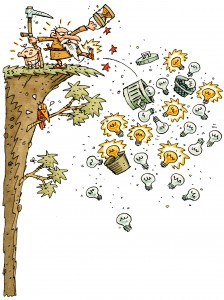By John Monterosso and Barry Schwartz | The New York Times | July 27, 2012
 Are you responsible for your behavior if your brain “made you do it”?
Are you responsible for your behavior if your brain “made you do it”?
Often we think not. For example, research now suggests that the brain’s frontal lobes, which are crucial for self-control, are not yet mature in adolescents. This finding has helped shape attitudes about whether young people are fully responsible for their actions. In 2005, when the Supreme Court ruled that the death penalty for juveniles was unconstitutional, its decision explicitly took into consideration that “parts of the brain involved in behavior control continue to mature through late adolescence.”
Similar reasoning is often applied to behavior arising from chemical imbalances in the brain. It is possible, when the facts emerge, that the case of James E. Holmes, the suspect in the Colorado shootings, will spark debate about neurotransmitters and culpability.
Whatever the merit of such cases, it’s worth stressing an important point: as a general matter, it is always true that our brains “made us do it.” Each of our behaviors is always associated with a brain state. If we view every new scientific finding about brain involvement in human behavior as a sign that the behavior was not under the individual’s control, the very notion of responsibility will be threatened. So it is imperative that we think clearly about when brain science frees someone from blame — and when it doesn’t.
Read the full article here.





